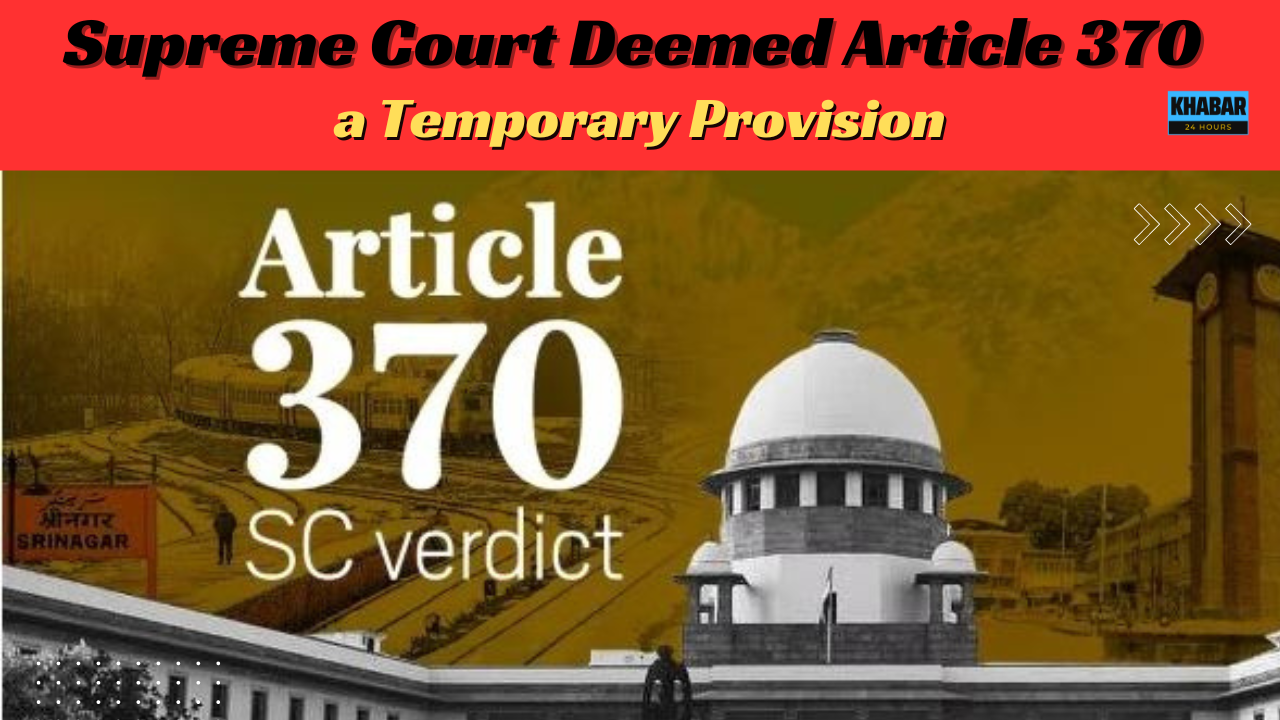
The recent Supreme Court verdict upholding the abrogation of Article 370, which granted special status to Jammu and Kashmir, has reignited discussions about the constitutional provision’s history and legal validity. While the center argued that Article 370 was temporary and could be revoked through a presidential order, critics maintain that it was an integral part of the state’s accession to India.
Arguments in favor of Article 370’s ‘temporary’ nature:
- The Constituent Assembly: Article 370(3) explicitly states that the provision would cease to exist once the state’s constituent assembly frames its constitution. However, the constituent assembly was dissolved in 1957 without fulfilling this requirement.
- Ambiguity in wording: The wording of Article 370 itself is ambiguous, leaving room for interpretation. Phrases like “the President may, by order…” and “subject to the provisions of this article” allow for flexibility in its application.
- Evolution of the Indian Constitution: The Constitution, including its provisions, is not static and can be amended to reflect changing circumstances.
- Harmonious integration: The center argued that revoking Article 370 would promote greater integration of Jammu and Kashmir with the rest of India, enabling economic development and social progress.
Arguments against ‘temporary’ interpretation:
- Legality of dissolution of the constituent assembly: The manner in which the constituent assembly was dissolved is contested, with some legal experts arguing that it was unconstitutional and undermined the autonomy promised to Jammu and Kashmir.
- Historical context and agreement: The inclusion of Article 370 was a key element of the Instrument of Accession, the agreement between India and Jammu and Kashmir that formalized the state’s accession. Abrogating it unilaterally would violate the terms of this agreement, according to critics.
- Unilateral decision: The center’s decision to revoke Article 370 was taken without consulting the people of Jammu and Kashmir, leading to accusations of disregarding their rights and concerns.
- Potential for instability: Critics argue that abrogating Article 370 could lead to increased tensions and instability in the region, potentially jeopardizing national security.
Supreme Court’s reasoning:
The Supreme Court upheld the abrogation of Article 370, stating that the President acted within his constitutional authority. The court acknowledged the ambiguity in the wording of Article 370 but concluded that the President’s order was procedurally sound and did not violate the Constitution.
Implications and future developments:
The Supreme Court’s verdict has significant implications for the future of Jammu and Kashmir. While the legal battle over Article 370 appears settled, the political and social issues surrounding the region remain complex and require careful consideration and dialogue.

